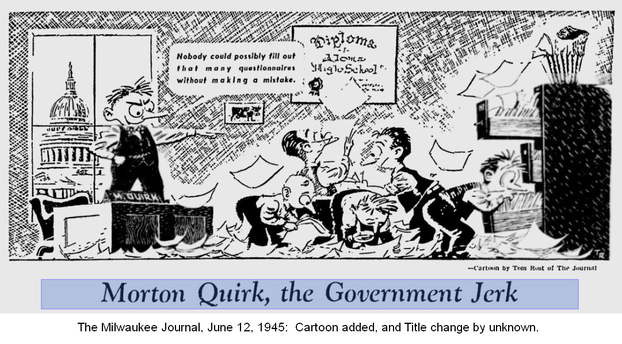According to the National Human Genome Research Institute, any change in whole or part of the DNA sequence away from the norm causes a genetic disorder. Such a disorder can be inherited from a parent or caused by mutation in one or more genes resulting from a number of events such as environmental factors.
In my case, I’m convinced that I have a multifactorial inheritance disorder, from both parents, resulting in my regrettable lack of a “Pithy” gene. In non-medical terms, my body produces too much of a word enzyme which accumulates in my finger tips and saliva glands, making me extremely sensitive to silence. Silence without words can cause extreme pain.

Photo source: https://www.londontypewriters.co.uk/product/1920s-working-smith-corona-4-manual-typewriter-black-new-ribbon-case/
I love words. Lots of words. Long words. I am vociferous and a sesquipedalian (long winded), and have never written or spoken a short, concise, to-the-point sentence in my life. It’s too painful.
Besides, the English language is rich and filled with vivid, clever, and delightful ways to express one’s thoughts. Writers should learn to take advantage of that. I squirm when I hear authors, editors, and agents say we should write to fourth grade vocabulary.
God forbid. Let them all contract pneumonoultramicroscopicsilicovolcanoconiosis.
Of course, I come by it honestly. After all, I did inherit the genetic defect. Both my parents had substantial vocabularies and used them in their normal conversation. We used to discuss my father’s law cases and legal and political issues at the dinner table. A little of that rubbed off on me.
In particular, my father used to quote poetry … just of the fun of it. Not the high-brow stuff, but more contemporary, and often humorous. I learned the following poem at a young age, only because I heard it often enough. In the eighth grade, at thirteen, I had to recite a poem in class, and the one that follows was my choice.
I knew it was written during WWII but my father didn’t know the author, and neither did anyone else at the time. I only learned recently, in a blog post by Ron Clark and Merritt Clark, that it was written by W. Sterling Atwater and first published on April 13, 1943, in The Boston News Bureau, credited to W.S.A. W. Sterling Atwater in 1934
Photo source: http://www.echatham.com/quirk/

Back to my story. Always a buzz-kill, my father told me I couldn’t recite it in class unless I looked up and knew the meaning of every word. I did that, and I never forgot the poem. I can still recite it by heart after 65 years. Note that after the war, my father wrote the last three verses and tagged them onto the original.
The head of the Division of Provision for Revision
Was a man of prompt decision, Merton Quirk.
PHD in calisthenics,
PDQ in pathogenics,
He had just the proper background for the work.
From the pastoral aroma of Aloma, Oklahoma,
With a pittance of salary in hand,
His acceptance had been whetted,
Even aided and abetted,
By emoluments that netted some five grand.
So with energy ecstatic this fanatic left his attic
And hastened down to Washington D.C.
Where, with verve and vim and vigor,
He went hunting for the tiger
In the woodpile of the W.P.B.
After months of patient process, Merton’s spicular proboscis
Had unearthed a reprehensible hiatus
In the reply of Blair and Blair
To his thirteenth questionnaire
In connection with their inventory status.
They had written, “Your directive when effective was defective
In its ultimate objective, and what’s more,
Neolithic hieroglyphic
Is to us much more specific
Than this drivel you keep dumping at our door.”
The sacrilege discovered, Merton fainted, but recovered
Sufficiently to write, “We are convinced that
Sabotage is camouflaged
Behind perverted persiflage.
Expect me on the twenty-second inst!”
But first he sent a checker,
And then a checker’s checker,
Still nothing was disclosed as being wrong.
So a checker’s checker’s checker
Went to check the checker’s checker
And the process was laborious and long.
Then followed a procession of the follow-up profession
Through the files of the firm of Blair and Blair,
And from breakfast time to supper
Some new super-follow-upper
Tore his hair because of Merton’s questionnaire.
Now that file is closed, completed, but our hero, undefeated
Carries on in some department as before,
And victory hove in sight,
Not because of, but in spite,
Of Merton’s mighty efforts in the war.
`` W. Sterling Atwater (1943)
Now with the start of reconversion the diversion for dispersion
Made diversion for a man of Merton’s mettle.
And he plunged with wild elation
Into contract termination
With a firm determination not to settle.
But sagacious legislation clarified the obfuscation
Of the contract termination situation,
Leaving Merton empty handed,
Slightly desperate, nearly stranded,
Till someone organized United Nations.
Now under the compulsion of atomic jet propulsion,
With a modicum of tax exempted wages,
Our Merton, with sagacity
And unexcelled tenacity,
Is settling the problems of the ages.
William E. Coombs (1950s)
Cartoon by Tom Ruse of the Milwaukee Journal / Photo source: http://www.echatham.com/quirk/
Note: According to Google, the longest word in any of the major English language dictionaries is a word that refers to a lung disease contracted from the inhalation of very fine silica particles, specifically from a volcano; medically, it is the same as silicosis: pneumonoultramicroscopicsilicovolcanoconiosis,
Now in contention for the title of longest word is aequeosalinocalcalinoceraceoaluminosocupreovitriolic (52 letters), created by Dr. Edward Strother to describe the unique ancient Romans baths located in Bath, England. The word is a mashup of other words that describe the properties found in the Roman Baths, like cooper, salty and rich.
Sources:
http://www.echatham.com/quirk/



















































 RSS Feed
RSS Feed